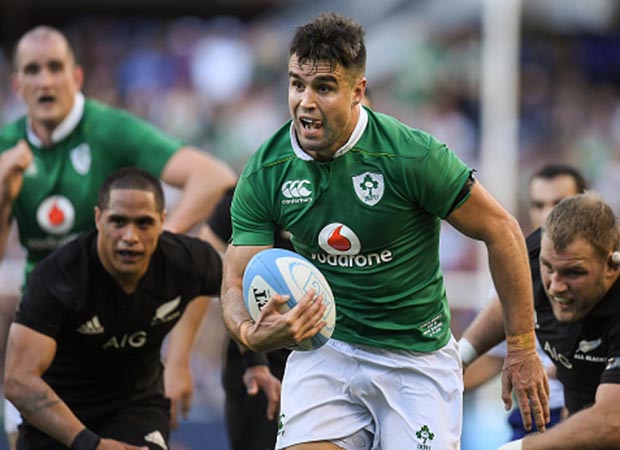
 Warren Gatland is the right man to be head coach of this Lions tour to New Zealand because of the success he enjoyed in Australia in the same role in 2013. This week he announced his assistants, and it is right that he picks his own coaching team because the buck stops with him.
Warren Gatland is the right man to be head coach of this Lions tour to New Zealand because of the success he enjoyed in Australia in the same role in 2013. This week he announced his assistants, and it is right that he picks his own coaching team because the buck stops with him.
I don’t think he will have found it a hard choice to pick either Andy Farrell, as defence coach, or Rob Howley as backs coach, because they were both with him four years ago. Given the advances made in England’s set-piece since Steve Borthwick was appointed, it also made sense for him to be included.
I mentioned Gregor Townsend as a possible backs candidate a few months ago, but I was not surprised he felt unable to take the time out from his new appointment as Scotland coach – and he will probably have other chances.
Rob Howley has been on two Lions tours already as a backs coach – won one (2013), lost one (2009) – and it is arguable that it could have been better for him to go as head coach with Wales to the South Pacific from a career perspective. The pull of the Lions is huge, and in his place I would have found it hard to turn it down; however if my ambition is to be head coach of Wales after Warren I would have stayed back with Wales this time.
Howley has had some unfair stick, aimed mainly at Wales recent attacking strategy during the autumn internationals. The critique of Wales from inside the country goes quite deep, and a lot of finger-pointing goes on. My view is that Wales have players with certain skill sets and physiques, like Jamie Roberts, Jonathan Davies and Dan Biggar, and that you make the best of that – and overall, I believe Howley has done that.
At this stage of the season it has to be said that it does not look as if there will be ten or more Welsh players in the 2017 tour party, as there were four years ago. That will make it more of a challenge for Howley – and Gatland – but it should be a rejuvenating coaching experience.
Howley’s task will be to shape and define an attack in which he could be working with players he is less familiar with. This will probably include Jonathan Sexton, Owen Farrell, Robbie Henshaw – who is a centre with similar physicality to Roberts – Jonathan Joseph, Stuart Hogg and perhaps Elliot Daly and Anthony Watson.
Borthwick will also be a refreshing presence because of how meticulous he is, and some of the players will find that a bit of an eye-opener.
It may need one more coach, because you are preparing two teams every week, so it is non-stop. On the three Lions tours I went on we all moulded together as one squad, which included being together for most training sessions before a couple of final preparation sessions for the starting team. That template has remained the same, apart from 2005 when the two-team system backfired badly.
Ben Ryan had been mentioned as a possible assistant coach, and then there are two promising Premiership coaches in Ali Hepher (Exeter) and the Saracens double-winning forwards coach Alex Sanderson.
If it is a skills coach the Lions are looking for then you could not do much better than someone from Sevens. I am not convinced they need another big hitter, because the most important thing for any Lions coach is an understanding of the players – and being able to communicate to get their message across quickly and clearly. The big thing is that you haven’t got six years to do it in, you’ve got six weeks.
Gatland and Farrell are strong characters, and that’s why it is important to have a new voice, especially when it comes to selection. Even experienced Lions coaches need people who can question them and champion those new players who are on fire form-wise. Over a three to four week period during a Lions tour you usually have players whose form becomes sensational, and when that happens you cannot be blinded as a coach by preconceptions you have of some players, picking them on the basis of what they’ve done for you in the past.
To be fair to Gatland, he went against that in the last Test in Australia in his controversial decision to pick Jonathan Davies over Brian O’Driscoll – but he was helped in making that selection call because he knew Davies very well.
For the moment, the 2017 Lions have not got that new voice, and nor have they got Ireland coach Joe Schmidt, who is the only Home Unions coach to have beaten Steve Hansen’s New Zealand. In my view, there is no better person than Gatland to get the best out of this Lions squad, and having Schmidt would not work. Schmidt is a number one, definitely, and it would not fit together having two number ones on the same tour.
It will have been very helpful for Gatland and Howley to have seen New Zealand first-hand last summer on the Wales tour, and for Gatland to have followed that up by watching them against Ireland in Chicago, and in the rest of the autumn series.
Analysis is now an important part of the game, and an important coaching aid. What is interesting about the coaching team of Gatland, Howley (Wales), Farrell (Ireland) and Borthwick (England) is that they all come from national teams playing different styles of rugby, containing players with different strengths.
Wales were ambitious against New Zealand last summer, and fairly freestyle in their approach, scoring tries but conceding far more. Ireland employed a different strategy. They played with massive intensity, but were also so disciplined they made so few errors and gave away so few penalties that there was nothing for New Zealand to feed off. By contrast, England’s four victories over Australia relied more on excellent defence and a powerful set-piece.
Gatland’s main challenge is to pull together those different ways of thinking, and strengths, into a team to beat the All Blacks. What we do know is that the Lions should have a pack which is as fit as New Zealand’s, and should be able to compete or even ‘do them’ up front – with England’s improvements in conditioning and intensity under Eddie Jones a big plus. If you add to that the brilliance of Conor Murray, the strides made by Ben Youngs, and the accomplishments of fly-halves like Sexton and Owen Farrell, and you have a hell of a spine to take them on.
In 2013 the Lions victory was based on the Welsh way, which was mainly a power game. Some of what Eddie Jones says about it being a mistake to try to play New Zealand at their own game makes sense, because they have perfected it. Their idea is to feed off the organised chaos they create from their defensive pressure, with their attack from turn-overs and kick-returns having the precision and pace of an NFL Special Team.
New Zealand live off defences being disorganised, even if it’s only for a split-second, and striking ruthlessly – and the main reason Ireland won in Chicago is because they gave so few of those opportunities. The Irish paid special attention to minimising errors, and they put New Zealand under so much pressure that they infringed and were penalised. If the Lions borrow from that, and hopefully have a referee who is not scared to sin-bin a couple of All Blacks when they infringe, they will be in business.
I expect the Lions approach to be not a million miles away from what Ireland did, especially if Rory Best, Tadhg Furlong, Murray, Sexton and Henshaw become a major influence. However, Lions coaches have to be able to adapt quickly. For example in 1989 we were definitely going to play the Scottish way by rucking, but then the English forwards came through strongly in selection and it became a mauling game.
The Lions have to play to their strengths, and the three tours I went on were dominated by England players. However, the standard is set in training irrespective of where you come from, and your peers take notice of who is setting it, as do the coaches. My feeling is that this time the 2017 Lions have multiple strengths and that victory is on the cards, with the proviso that the best players remain fit and healthy.


Latest News
Super Rugby Americas: Round Ten Review

British and Irish Lions
British and Irish Lions: Biggest winners and losers from Andy Farrell’s selection

















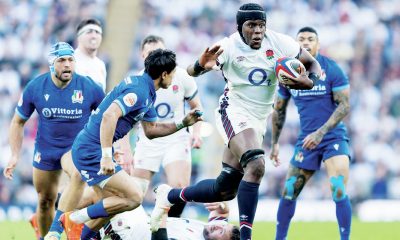

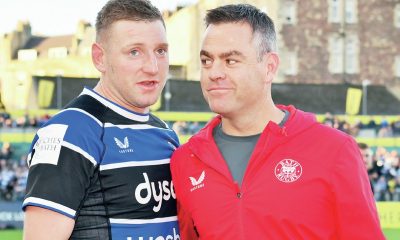

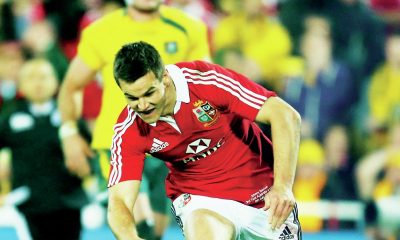

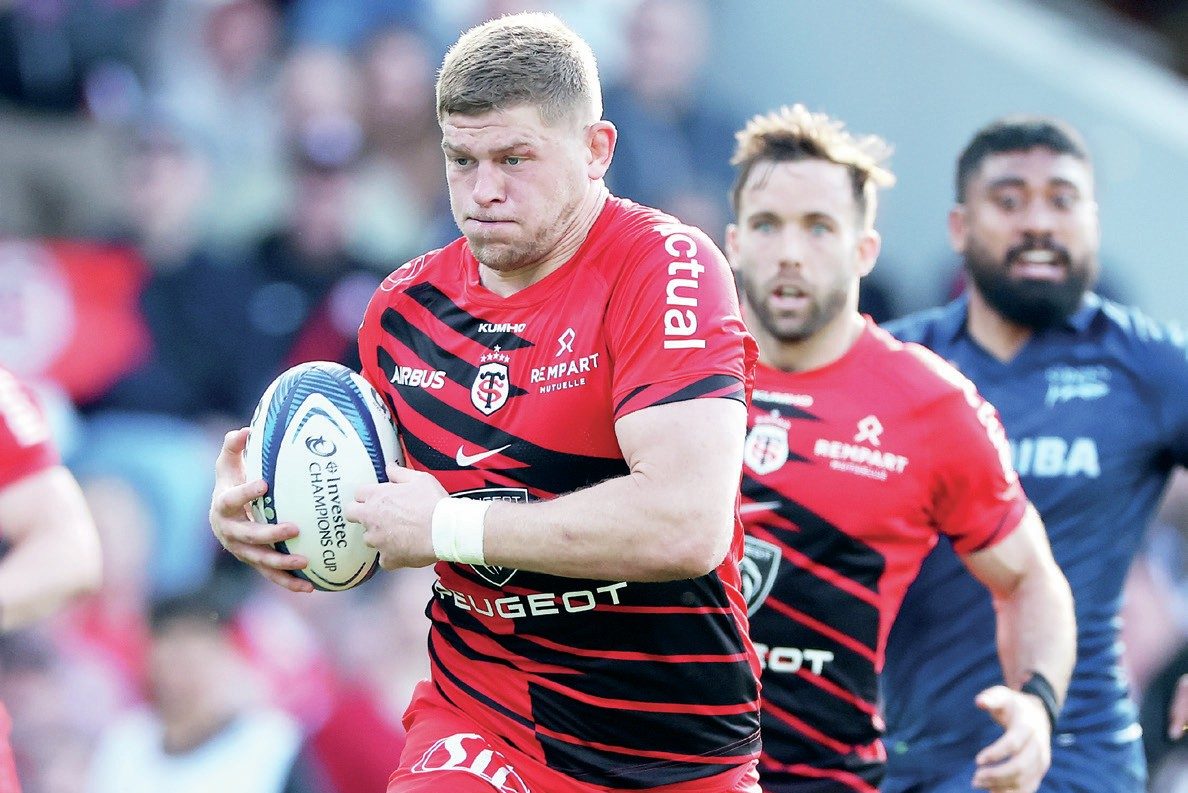
You must be logged in to post a comment Login